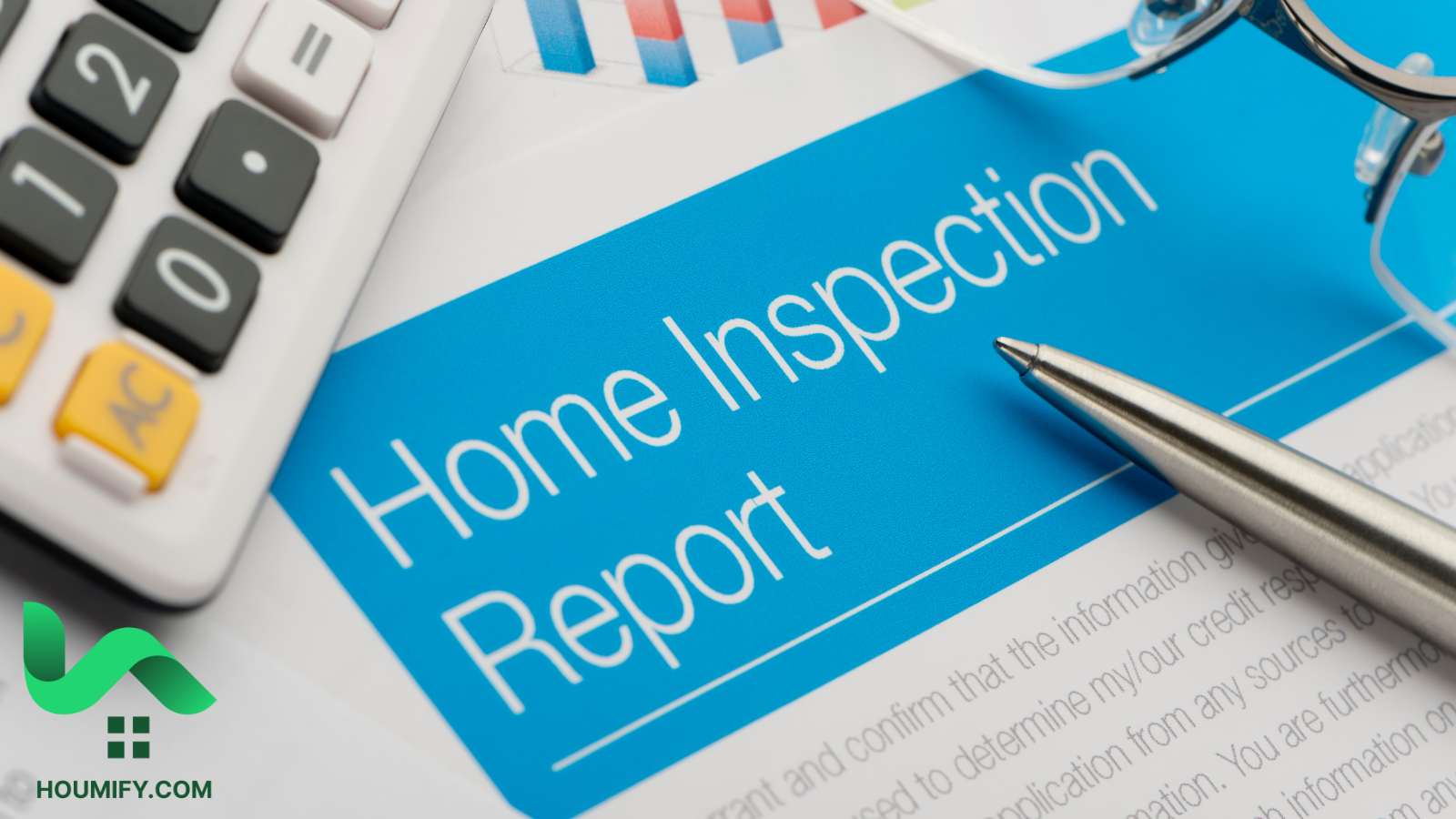How to Find a Reliable Home Inspector: Your Ultimate Guide
When you’re in the process of buying a home, you want to ensure that the property is in good shape and free from any hidden surprises. That’s where a home inspector comes in. A professional home inspector examines the property’s structural integrity, safety features, and systems like plumbing and electrical, giving you peace of mind before finalizing your purchase. But with so many inspectors out there, how can you make sure you find the right one? In this guide, we’ll break down the steps to help you choose a reliable home inspector, why it’s important, and how it can save you time and money in the long run.
Why a Home Inspection is Critical in the Home Buying Process
A home inspection is essentially a health check for the property. It helps uncover issues such as faulty wiring, plumbing problems, pest infestations, or structural damage. These are the types of problems that could end up costing you thousands of dollars if left undetected.
In addition to identifying issues, a home inspection gives you the upper hand in negotiations. If the inspector finds significant problems, you can ask the seller to fix them or lower the price. Either way, having a reliable home inspection report ensures that you’re making a well-informed decision.
Should You Trust Your Real Estate Agent’s Recommendation?
Your real estate agent might offer to recommend a home inspector. While this can be helpful, keep in mind that your agent’s priority is to close the deal, which may sometimes conflict with getting an unbiased inspection. Some inspectors, hoping for repeat referrals from agents, might go easy on their reports.
That’s why it’s essential to do your own research. You want a home inspector who works for you, not your agent. While your agent may give you a list of inspectors, always independently verify their qualifications.
How to Find a Reliable Home Inspector
Start with Personal Referrals
The first step in your search should be asking friends, family, or colleagues who have recently purchased homes for recommendations. Word-of-mouth referrals from people you trust can give you a solid starting point.
Use Online Reviews and Resources
Online platforms like Yelp, Google Reviews, or neighborhood forums such as NextDoor are valuable tools for finding honest feedback on local home inspectors. Look for inspectors with positive reviews and pay attention to any patterns in negative feedback. If multiple clients mention the same issue, it’s likely a red flag.
You can also check professional organizations like the American Society of Home Inspectors (ASHI) or the International Association of Certified Home Inspectors (InterNACHI). These organizations have directories of certified inspectors who have undergone rigorous training and adhere to a strict code of ethics.
Credentials and Licensing: What You Need to Know
In some states, home inspectors must be licensed, while in others, there are no formal requirements. Regardless of your state’s regulations, it’s best to hire an inspector certified by a respected organization like ASHI or InterNACHI. Certification ensures that the inspector has passed exams and continues to meet industry standards.
However, don’t just rely on credentials. Even certified inspectors can vary in quality. It’s essential to look beyond the certificate and dig into the inspector’s experience and track record.
What to Look for in a Reliable Home Inspector
Experience is Key
A home inspector with years of experience is more likely to spot potential problems than a newcomer. Someone who has conducted hundreds, if not thousands, of inspections will have a sharper eye for hidden issues. When interviewing inspectors, ask about their experience with homes similar to the one you’re purchasing. If you’re buying an older home, look for an inspector with experience dealing with historic properties, as they often have unique problems.

The best home inspections take time—typically two to four hours
depending on the size of the property. Be cautious of inspectors
who breeze through an inspection in under an hour. When evaluating
inspectors, ask for sample reports to see how detailed their
findings are. A good report should include photos, descriptions of
any problems, and recommendations for fixing them.
Inspectors who use advanced tools like thermal cameras and
moisture meters are also more likely to catch problems that aren’t
immediately visible. These tools can help detect issues like hidden
leaks or poor insulation.
Clear Communication
It’s not enough for an inspector to find issues—they need to
explain them clearly. The report should help you understand the
seriousness of any problems and offer suggestions for addressing
them. If the inspector has trouble explaining their findings or is
vague, consider it a red flag.

Key Questions to Ask a Home Inspector
Here are some important questions to ask when interviewing home
inspectors:
Q. Do you physically inspect the roof and
crawlspace?
A. Inspectors should check hard-to-reach areas whenever
possible. If safety is a concern, they may use drones or cameras.
Q. Do you inspect the attic?
A. Attics can reveal signs of structural damage, water leaks,
or poor insulation. Make sure this area is included in the
inspection.
Q. What tools do you use?
A. Advanced tools like thermal cameras and moisture meters are
essential for detecting hidden problems. A reliable inspector
should use modern equipment.
Q. Can I see a sample report?
A. A sample report will give you an idea of how detailed the
inspector’s findings are. Look for clear, actionable information.
Q. Can I accompany you during the inspection?
A. Good inspectors welcome buyers to walk through the property
with them. This allows you to ask questions in real-time and better
understand any potential issues.
The Cost of Hiring a Home Inspector
Home inspection costs typically range from $300 to $1,000,
depending on the inspector’s experience, the size of the home, and
its location. While it may be tempting to go with the cheapest
option, keep in mind that a more affordable inspector might miss
key issues. Paying a bit more for a thorough inspection could save
you thousands in the long run.
Some inspectors offer additional services, like drone footage
for roof inspections or infrared scans to detect moisture. These
services may come at an extra cost, so it’s important to ask what’s
included in the inspection fee.

Specialized Inspections: When to Consider Extra
Testing
Some homes, particularly older ones, may require specialized
inspections for radon, mold, termites, or lead paint. These tests
aren’t usually included in a standard inspection and may cost
extra, but they can be crucial for identifying hidden issues.
Why a Home Inspection is a Smart Investment
A few hundred dollars spent on a thorough home inspection can
save you from unexpected repairs down the line. It also gives you
leverage to negotiate with the seller, whether it's asking them to
fix issues or adjust the sale price. In some cases, a home
inspection might even uncover problems so severe that you decide to
walk away from the deal altogether.
Even minor issues can snowball into bigger problems if left
unaddressed, so catching them early is always a good idea.
The Most Comprehensive Tips for Finding a Reliable Home
Inspector
-
Invest time in finding a qualified inspector:
Start with referrals and online reviews to narrow down your
options.
-
Check credentials: Ensure the inspector is
certified by organizations like ASHI or InterNACHI.
-
Ask for sample reports: A detailed report shows
that the inspector is thorough and professional.
-
Inquire about tools and technology: Modern tools
help detect hidden problems that others might miss.
-
Be present during the inspection: Walking through
the inspection with the inspector allows you to ask questions and
learn about the home in real-time.
Essential Questions About How to Find a Reliable Home
Inspector
Q. Why is it important to find a reliable home
inspector?
A. A reliable inspector helps identify potential
problems, saving you from costly repairs.
Q. When should I start looking for a home
inspector?
A. Begin your search as soon as you start the home
buying process, so you're ready when you make an offer.
Q. Where can I find reliable home inspectors?
A. Start with referrals from friends, family, and
online resources such as professional organizations like ASHI and
InterNACHI.
Q. What should I look for in a home inspector?
A. Look for experience, thoroughness,
certification, and the use of advanced inspection tools.
Q. Who pays for the home inspection?
A. Typically, the homebuyer pays for the
inspection, but in some cases, it can be negotiated as part of the
sale.
Q. How can a home inspector save me money?
A. By identifying issues before you purchase the
home, you can negotiate repairs or a price reduction, saving you
thousands.
A. Inspectors should check hard-to-reach areas whenever possible. If safety is a concern, they may use drones or cameras.
A. Attics can reveal signs of structural damage, water leaks, or poor insulation. Make sure this area is included in the inspection.
A. Advanced tools like thermal cameras and moisture meters are essential for detecting hidden problems. A reliable inspector should use modern equipment.
A. A sample report will give you an idea of how detailed the inspector’s findings are. Look for clear, actionable information.
A. Good inspectors welcome buyers to walk through the property with them. This allows you to ask questions in real-time and better understand any potential issues.
A. A reliable inspector helps identify potential problems, saving you from costly repairs.
A. Begin your search as soon as you start the home buying process, so you're ready when you make an offer.
A. Start with referrals from friends, family, and online resources such as professional organizations like ASHI and InterNACHI.
A. Look for experience, thoroughness, certification, and the use of advanced inspection tools.
A. Typically, the homebuyer pays for the inspection, but in some cases, it can be negotiated as part of the sale.
A. By identifying issues before you purchase the home, you can negotiate repairs or a price reduction, saving you thousands.